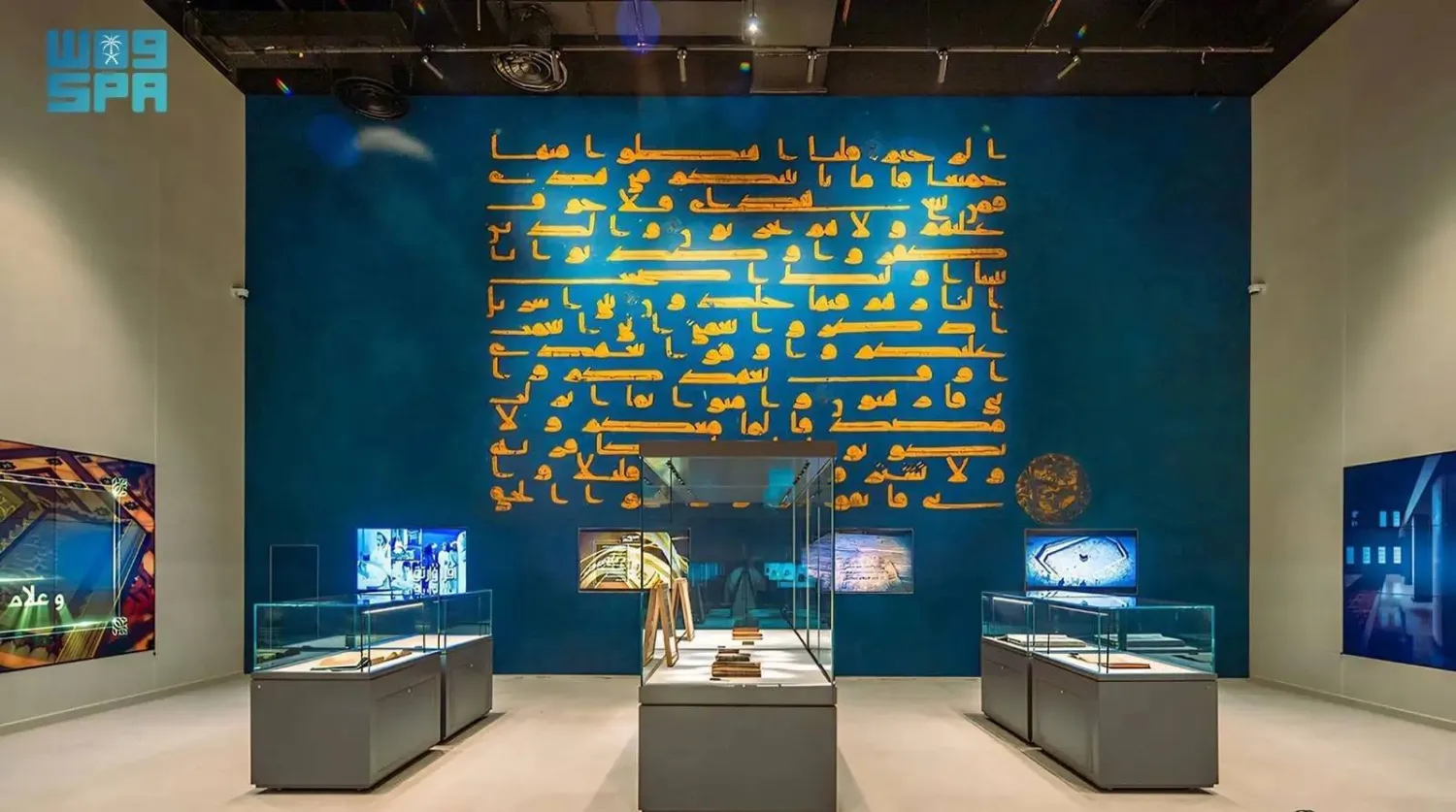When a group of international musicians stood on the sidelines of the G20’s ministers of culture’s meeting in India to perform “Sur Vasudha”, celebrating the musical heritage of these countries, the head of the Saudi Orchestra appeared in their national garment and Arabic accent to partake in the song, which described the whole world as one family. From India, to France, Mexico, Jordan, and many other countries, the Saudi National Orchestra has played a universal musical language that connects people from around the world, and reminds them of what they have in common.
In every international event, with the participation of around 70 Saudi performers and instrument players, the National Saudi Orchestra and Choir perform a bouquet of folkloric, patriotic, and modern songs that highlight the Saudi musical culture, and the special products of the national music library.
The Saudi Orchestra led unprecedented international events in which it blended the diverse and rich Saudi musical folklore with the music of the hosting countries. On social media, fans shared some of the exceptional pieces the Saudi National Orchestra and Choir performed with other international groups, including the Carlos Chávez Orchestra at Mexico’s National Theater, where the audience genuinely applauded in appreciation of the great performance blending the two musical experiences.
An 80-year-old experience
The Saudi National Orchestra and Choir debuted as an early experience, in 1942, when Saudi Defense Minister, Prince Mansour bin Abdulaziz named renowned artist and one of the first Saudi composers, Tariq Abdul-Hakim to form a military music band, which became the core of an artistic journey that grew with time and helped create a unique Saudi musical identity.
Abdul-Hakim traveled to Egypt in 1952, to start the preparations for a Saudi orchestra. During his trip, he met with esteemed Arabic and Egyptian musicians, who helped shape his musical taste and journey. Back from his trip, which also included Lebanon, he started founding the first military music institute in the kingdom, and a musical group that paved the road for a prospering artistic era.
New phase and promising start
In 2019, in light of a rising momentum in the culture sector, the Saudi Culture Ministry announced the formation of the Saudi National Music Band, and the development of a professional team that represents the kingdom internationally, and promotes the Saudi music and musical heritage around the globe. The ministry chose the Saudi esteemed crooner, Abdel Rab Idris, who convoyed the Saudi music experience since its early days, to build the national team and teach different types of Arabic and international music, as well as supporting and promoting the music industry in Saudi Arabia, and spreading the national musical folklore around the world.
Following the revelation of a new cultural network in the kingdom led by the ministry of culture, which distributed the sector’s missions on 11 specialized commissions, the Saudi Music Commission launched in 2021 its own strategy to develop and support music in the kingdom in accordance with the Vision 2030. As part of its strategy, the commission has supported the outlets that facilitate access to the Saudi music product, enhanced the presence of the Saudi National Orchestra and Choir, an upgraded version of the Saudi National Music Band born in 2019.
Symbolic power and cultural identity
Maestro Imad Zaree said the National Orchestra and Choir represent the Saudi musical heritage on the international level, and provides a support system for the Saudi artists and musician in different fields. He also noted that the national band supports the local artistic movement with the discovery of talents and their qualification through specially-curated programs, as well as supporting the different art fields, promoting the Saudi heritage internationally, and boosting the goals of the Vision 2030, which defines culture, in its different categories, as a symbolic power, cultural identity, and economic addition.
Zaree, who led the National Orchestra and Choir in several international events, hailed the efforts of the ministry in setting plans that resulted in early accomplishments in international events. “We have seen the efforts of Culture Minister, Prince Badr bin Abdullah and their remarkable interest in supporting the foundation of the group and the development of its work. These efforts are manifested in the level of professionalism among the group’s members performing local and Arabic arts,” he added. This serves the interest of the Saudi art and artists, and helps spread the Saudi music experience to the world.
Thriving Saudi music and arts
Music has flourished in Saudi Arabia with many new experiences and entities created to develop the music sector and nurture promising talents. The sector has witnessed new initiatives and the opening of new music institutes for those wishing to develop their potential and engage in the new artistic phase.
Since February 2020, the Music Commission has been working on developing the infrastructure for a musical culture in the Kingdom, offering everyone the opportunity to learn music, as well as discovering, developing and empowering musical talents, spreading awareness of music culture, and establishing a sector that contributes to the domestic economy by creating jobs for both genders, live cultural performances, music recordings and amateur music education centers. The commission has also focused on reviving and documenting Saudi folklore and music performances to grow the national and social sense, developing the musical cultural identity of Saudi Arabia and promoting it regionally and globally, and emphasizing the kingdom’s leading position in the Arab and Islamic world.









